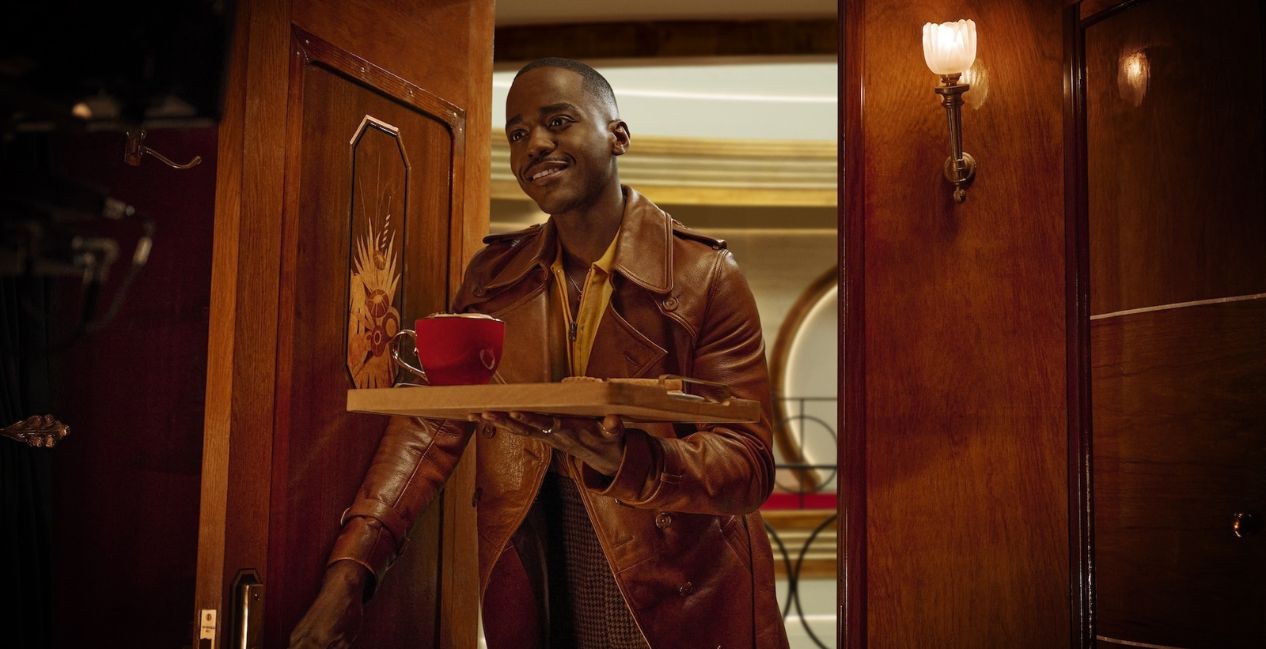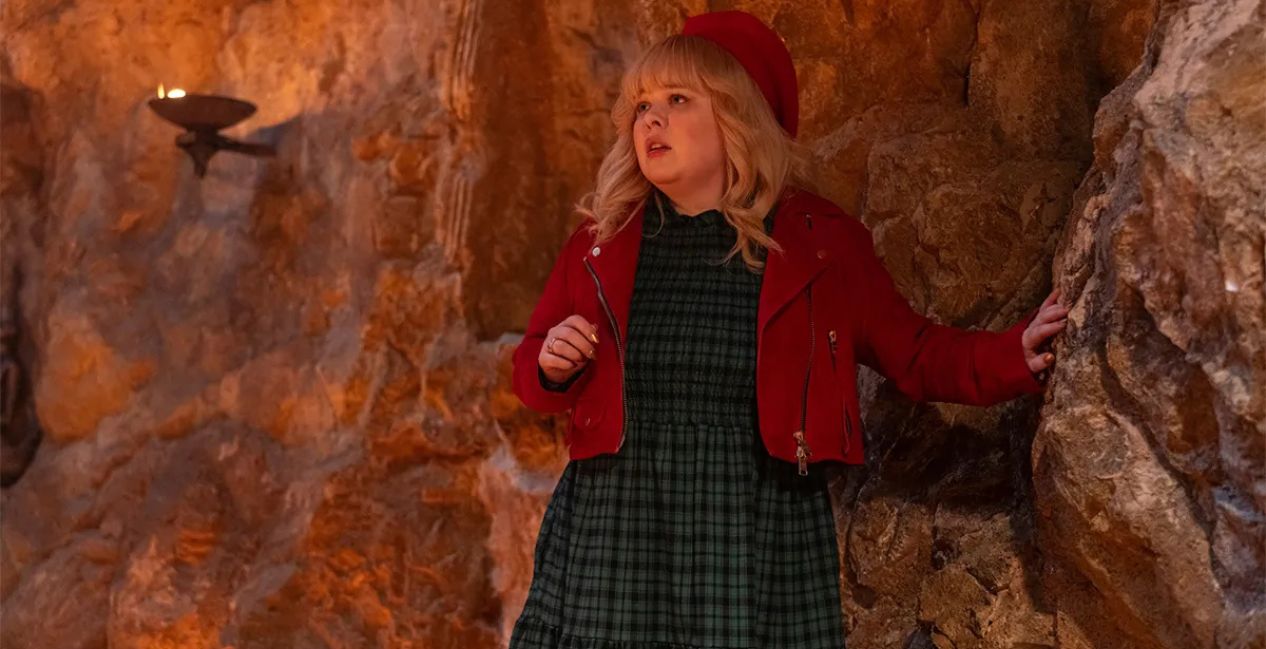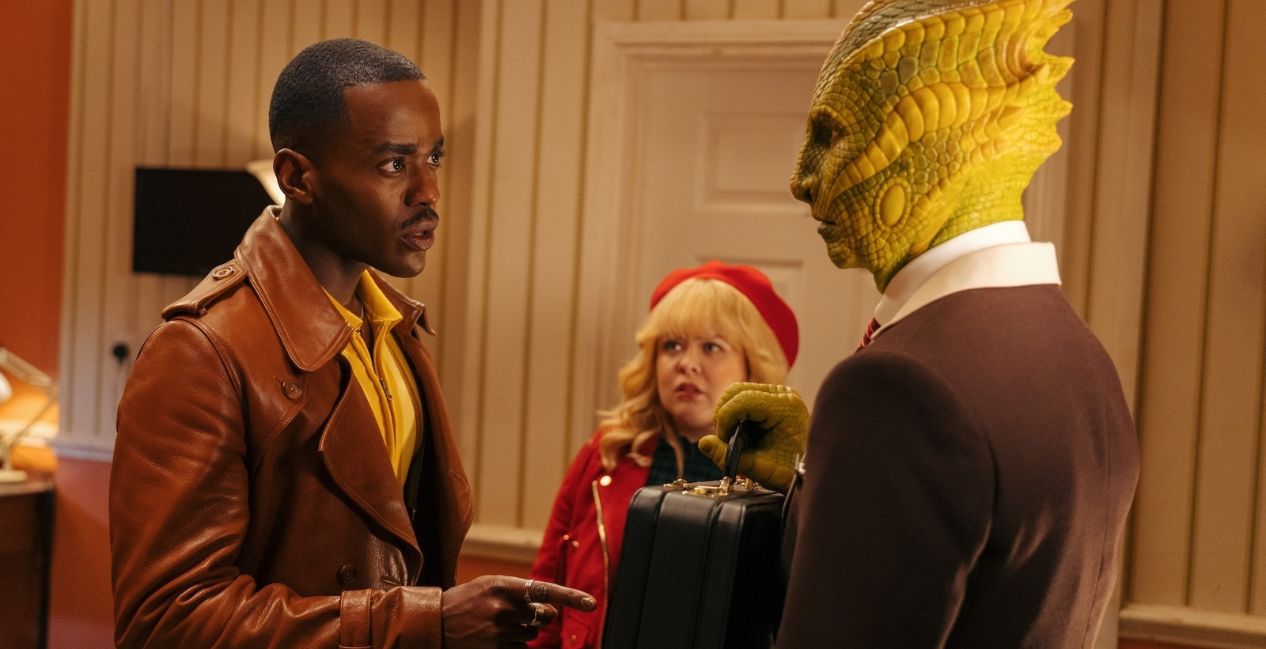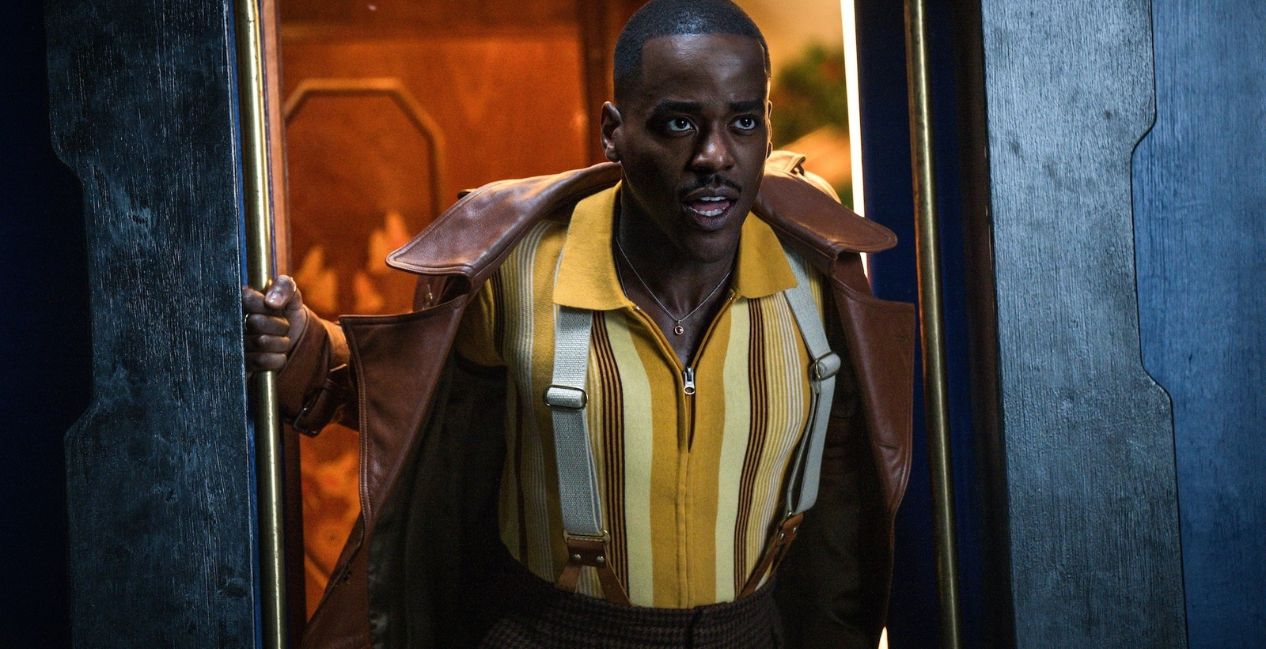“Joy to the World” is the 2025 Christmas special of Doctor Who. It is directed by Alex Pillai and written by Steven Moffat. The special stars Ncuti Gatwa as the time-travelling Doctor and also features Nicola Coughlan and Stephanie de Whalley. The Doctor travels to the Time Hotel, a building with doorways to hotel rooms all across time. There, he finds a suitcase that is attaching itself to people to make its way through the hotel and killing those it leaves behind.
With Moffat returning as a writer, “Joy to the World” embraces many of the features that his time as showrunner of Doctor Who carried frequently. The early pacing of the episode is energetic but slightly bewildering, and it does not slow down much at all. The structure is toyed with frequently, with scenes and characters repeating and returning to earlier moments. There is an example early on that is played for laughs, but then that concept is used to create a much bigger and more dramatic effect later in the episode.
The start is messy and busy, but there is a focus on that suitcase. The Doctor may wander off, and the characters are difficult to pin down and get to know at first, but that suitcase forces its way into attention. But then the Doctor is flung out of the location, stuck, and forced to stay still. The pace slows down and becomes sweet and decidedly Christmassy.
After a rough start, the Doctor Who Christmas special finds its stride

From this turning point, “Joy to the World” is investing, entertaining and emotional. There are smiles and tears, often at the same time. The end of the adventure ties all of the hotel rooms and plot threads together, jumping through time and feeling complete. The ending is heartbreaking and heartwarming at the same time. Moffat doesn’t run away from inflicting pain or death, but there is a wholesome conclusion behind it.
This special is Gatwa’s first real solo adventure, taking the lead after Ruby Sunday (Millie Gibson) departed at the end of last season. Gibson was also the star of Season 1, with Gatwa’s filming commitments affecting his presence in many episodes. That all said, he shines in this episode. He can dance around the set with a delightful smile, the noisy life of the party, and commanding attention onscreen. However, other elements of the role and performance create depth and add dimension.
When stuck, The Doctor has to do human activities that show his free and fun-loving side. But when the opportunity presents itself, he has to return to his other life. At this moment, we are reminded of how incompatible the life of a Time Lord is with humans and why The Doctor goes through human friends. It’s a scene of love and pain. Gatwa has a scene where he has to deliver vicious, painful verbal punches that hint at a darker side to the Time Lord.
Nicola Coughlan is brilliant as Joy

The Doctor is joined by two co-stars who have two different purposes to serve. Joy (Coughlan) is there for the sci-fi side. Entering a hotel room with one of those extra doors that leads to the Time Hotel, Joy is inadvertently dragged into the situation and becomes attached to the briefcase. That marks her for death. This has happened before in Moffat episodes, with some of the more precious and important characters in the history of Doctor Who. These characters may not always avoid the inevitable death, but perhaps they can bend the rules slightly.
Coughlan is brilliant in her role as Joy because she spends barely any time as a normal human. Once connected to the briefcase, she starts talking unusually, with whatever is inside the case influencing her. Yet there is almost always this bubbly personality that blurs the lines between casual chit-chat and celestial conversation. There is sadness behind Coughlan’s eyes but a beaming smile. When that smile drops, you stop and listen. It is an outburst of agony and anger, with a furious delivery that could be found in Season 1, Episode 3 (Boom).
The other important figure in this episode is Anita (de Whalley). She is the receptionist at the Sandringham Hotel Joy stays in. At first, she’s just in the background of conversations, occasionally chipping in but mainly there to do her job as the hotel manager. But she becomes pivotal, keeping the Doctor company once he is locked out of the hotel. They spend a lot of time together, getting very close. The chemistry Gatwa and de Whalley build is beautiful, much stronger than the one with Coughlan. Anita is so normal, and that’s why she excels in an episode with so much chaos.
Twice in “Joy to the World,” an exchange doesn’t quite work. The first time, Joy talks to a fly in her hotel room, introducing herself. The second time, The Doctor talks to someone who isn’t really in the scene in the dying seconds of the show. Both have a similar concept where the character talks more to the audience. However, they both hit their themes too heavily and damage the points they are making. Both of these exchanges would be more effective if they were left silent.
Loneliness is the binding theme of “Joy to the World”

One of the core themes of “Joy to the World” is loneliness, which connects all three main characters. They begin the story alone, either through tragedy or by choice. This bond continues throughout the show and connects it to Christmas. The episode only really feels Christmassy by the end, but the notion that no one is alone at Christmas is the one part that can be seen early on.
Moffat infuses a real resentment of corporations and governments, but that is masked with a single line in this episode that is beautifully effective. But both the briefcase and the hotel itself are examples of corporations trying to expand and collect as much profit as possible. They aren’t long, ranting diatribes but venom-spitting barbs that hit extremely hard.
The production is world-class. Doctor Who benefits from the increased budget from the partnership with Disney+. Every hotel room across time is a hand-built, carefully crafted set. This gives them a brilliant physicality and sense of location. Whether the characters are on the Orient Express or Mount Everest, it looks like they are in those periods. All objects can be touched and played with, and the actors can react to them right in front of their faces. The only serious piece of CGI is for a dinosaur, rivalling a Hollywood production. The details on the sets are extraordinary.
The special is ultimately not without its issues. The opening is clunky and hard to invest in, but Moffat finds a way to draw viewers in. Moffat has flaws as a writer, but he’s always talented, intelligent, and funny. Each performer shines at a range of normalities to the complete opposite. Gatwa can hold the screen even without Gibson by his side, and it will be fantastic to see him more present in the upcoming series.
“Joy to the World” is a comforting special. This episode perfectly shows how Doctor Who and Christmas Day are meant to be together. The themes of Christmas, such as hope, family, and loneliness, ground the hard sci-fi of the show. It’s warm and welcoming, perfect for a family to sit and enjoy together.
“Joy to the World” is available on BBCiPlayer in the UK and Disney+ everywhere else.
Doctor Who — “Joy to the World”
7/10
TL;DR
“Joy to the World” is a comforting special. This episode perfectly shows how Doctor Who and Christmas Day are meant to be together. The themes of Christmas, such as hope, family, and loneliness, ground the hard sci-fi of the show. It’s warm and welcoming, perfect for a family to sit and enjoy together.

